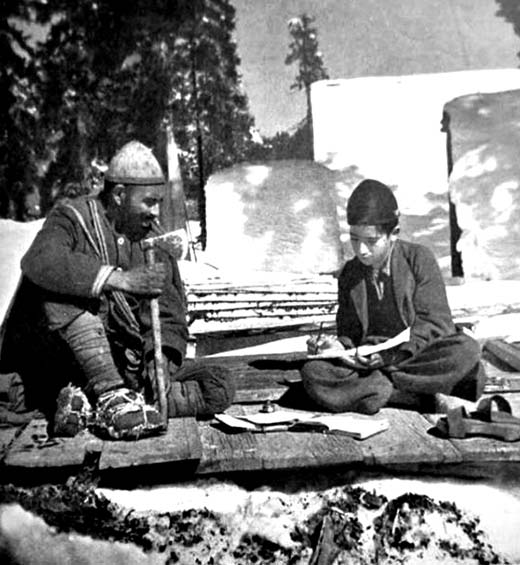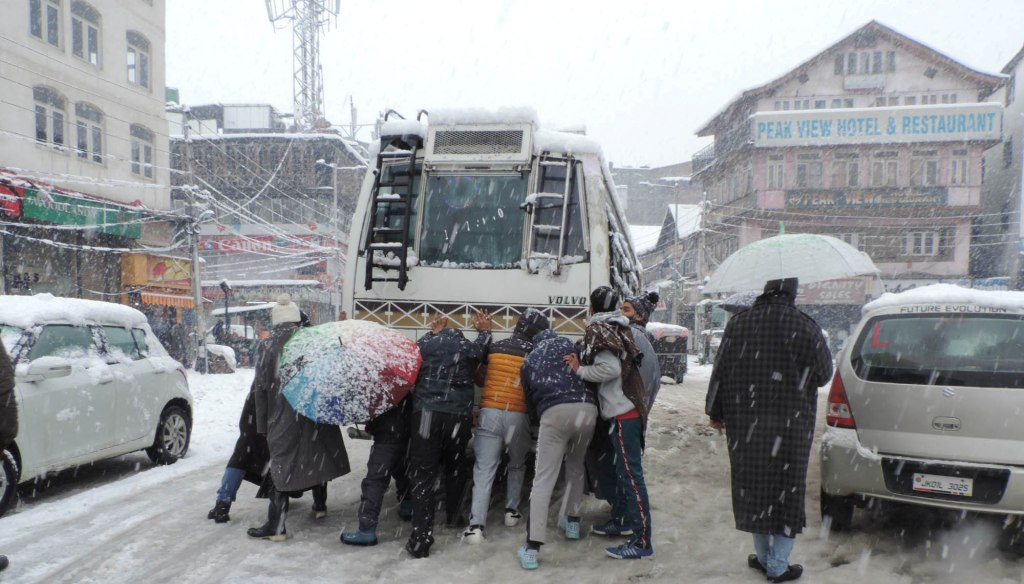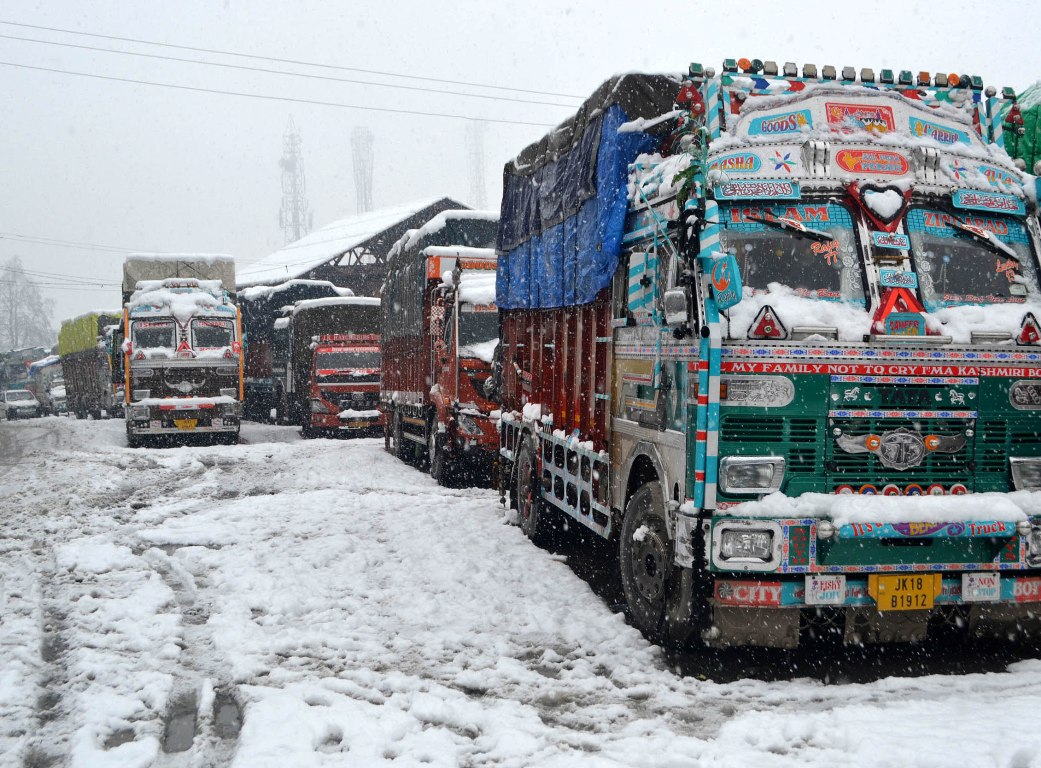Snow and cold shrinks responsibilities of the governing structure to a few critical areas but Kashmir’s continuous lack of power supply is key to a change, reports R S Gull

After taking over the impoverished Srinagar in 1846, Kashmir’s opium-eating buyer Gulab Singh did not leave the Vale. It was not solely because Jammu had nothing much to contribute to his kitty. The fact was that he wanted to consolidate his empire and retain the prized possession. Historic accounts detail how he wore the pulhour, the grass-shoes in winters and used Kangri, the firepot to stay warm because the miser king, habitual of even begging away desired things from his subjects, did not invest in Hamams initially.
For the first time after the sale of Kashmir, the Durbar moved to Jammu only in 1872, more than 25 years later, during the reign of Ranbir Singh. Part of his motivation was to stay safe from a possible rebellion that might surprise him in winters and part was helping Jammu to improve, economically and intellectually. He would take his Kashmir officials, mostly Pandits, with him who would interact with his Jammu subjects.
The same feeling was at display in 1989 when visiting Prime Minister Rajiv Gandhi shocked Dr Farooq Abdullah, then his ally, over the strange system of Durbar move. Why can not it be held reversely – the offices staying in Kashmir during winters and moving to Jammu in summers?
But subsequent regimes in Kashmir have continued with the practice as the possession is always in the safe hands of system that are actually ruling the roost, the bureaucracy. Even officials think that managing winters in Kashmir are challenging. There is just not one aspect of life that is to be managed. Almost every sphere of activity is a challenge.

Over the years, the systems in place have evolved a model for managing winter. Year after year, it is being reviewed and improved to the extent of possibilities. “Normally, there are three key concerns that the administration has to look at,” Basharat A Dhar, former Divisional Commissioner said. “First is ensuring supplies, send is to keep the communications open and finally it is the managing better distribution of power which is inadequate in supply.” Though the process of managing these critical issues starts around autumn but it is only supplies position that is managed adequately. “While the highway is the main concern and is unpredictable, the power is always in short supply and these concerns remain throughout the winter.”
Supplies are a major exercise. Srinagar has to first ensure adequate supplies of food grains and fuel for areas which remain disconnected from it for most of the winter. Machil, Karnah, Gurez, entire Ladakh and parts of Chenab Valley, the Wadwan and Madwa, are the main belts that have to have the first priority. Managing supplies for these areas is a continuous summer exercise that, in certain cases, costs more than the grain supplied.
Supplies are a multi-agency exercise. While the food grains are sourced through Food Corporation of India (FCI), fuel including LPG comes from three main oil companies. “Reviews are a regular process,” a top officer said. “Any time in winter, we have to have stocks for 15 days which is the main comfort.”

The Border Roads Organization (BRO) that has been manning the arterial highway of Kashmir with rest of the world has been facing certain issues with the National Highways Authority of India (NHAI) that is supposed to take over the road for creating an ambitious alternative. At the peak of a mess, it was settled in 2013. But even BRO does not know what happens next. So the highway shall remain unpredictable in future too.
But roads other than highway are managed well. Now the snow clearance is mechanical and engaging thousands of people to clear the roads manually is over. Kashmir, right now, is the proud owner of 102 snow clearing machines that operates from three places – 23 from Srinagar for the central Kashmir, 37 from Islamabad for south Kashmir and 42 from Baramulla for north Kashmir. “All these machines are deployed to clear a road length of 6777 km,” a middle rung officer from PWD’s mechanical division said. “In the city, the SMC takes care of the snow clearance from the interiors as we manage the major arterial roads.”
The power supply is a story that needs no to be retold. The crisis for Kashmir is that when it requires energy in bulk, its water table is down and most of what is left is frozen. The small powerhouses generate the least. This leads to massive dependence on imports of which more than 60 per cent is lost on transmission and distribution.
But all these plans go haywire if the winter improves its intensity. In January 1995, avalanches and snowstorm killed 69 passengers as one of the two tubes of the tunnel was closed and a convoy blocked one lane. A decade later, in February 2005, snow avalanches hit various places having populations living on slopes. As many as 270 residents were killed which included Gujjar hamlet of Waltengu – that was erased from map burying 185 hutments with 190 souls. Areas became so impassable that government had to airdrop essentials in certain areas.
As snow and intense cold jams life, it impacts routine governance issues. People routinely report their duties late and leave early. Short days and lack of adequate late-hour transportation adds to the tensions. Developmental activities stop for weather reasons. Schools remain closed and alterative tuition industry takes over. Barring managing the routine, nothing much happens. Former Chief Minister Ghulam Nabi Azad tried to improve the work culture but failed.
Now a rethink in governance structure suggests that the official machinery at various levels should, apart from monitoring the routine life and providing essentials, introspect and set targets for the working months. From this year, for instance, all the Deputy Commissioners have been directed that land acquisition processes must be over by the end of March so that work starts early April.
New thought process apart, there is only one thing that can change the winter, the electricity. If it is adequate and punctual, winter can be a game-changer and huge commerce.

